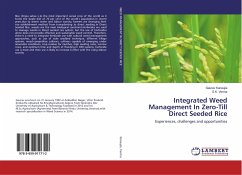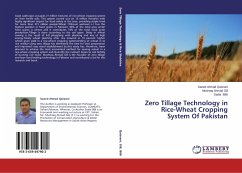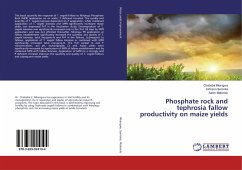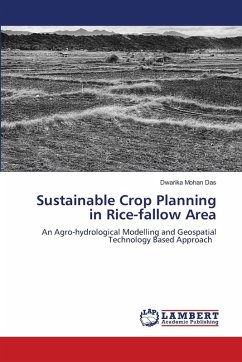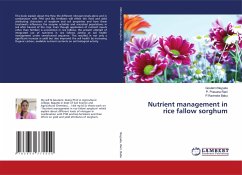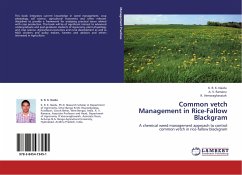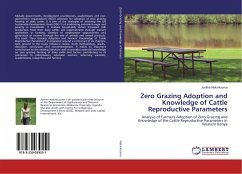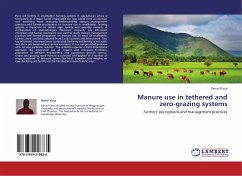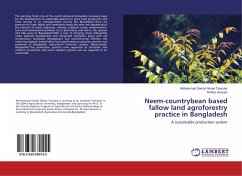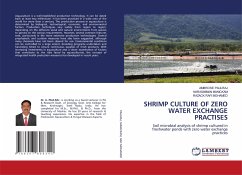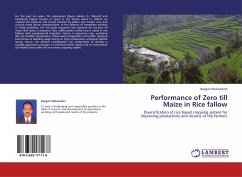
Performance of Zero till Maize in Rice fallow
Diversification of rice based cropping system for improving productivity and income of the farmers
Versandkostenfrei!
Versandfertig in 6-10 Tagen
27,99 €
inkl. MwSt.

PAYBACK Punkte
14 °P sammeln!
For the past ten years, the greengram [Vigna radiata (L.) Wilczek] and blackgram (Vigna mungo L.) sown in rice (Oryza sativa L.) fallows on residual soil moisture was found infested by yellow vein mosaic virus and cuscuta weed (biotic stress)problem. In the absence of immediate solution to these problems, the rice-pulse sequence was replaced by rice-zero till maize (Zea mays L.) sequence. But, unlike pulses, maize crop is raised in rice fallows with supplemental irrigation. Hence, in sequence crop, problems like rice stubble rejuvenation, initial weed competition and pollen drying & barrenness...
For the past ten years, the greengram [Vigna radiata (L.) Wilczek] and blackgram (Vigna mungo L.) sown in rice (Oryza sativa L.) fallows on residual soil moisture was found infested by yellow vein mosaic virus and cuscuta weed (biotic stress)problem. In the absence of immediate solution to these problems, the rice-pulse sequence was replaced by rice-zero till maize (Zea mays L.) sequence. But, unlike pulses, maize crop is raised in rice fallows with supplemental irrigation. Hence, in sequence crop, problems like rice stubble rejuvenation, initial weed competition and pollen drying & barrenness at tasseling stage owing to high temperature emerged (abiotic stress). Hence, the present investigation was undertaken to identify a suitable agronomic package, to overcome these ripples and to characterize soil health status after the rice-maize cropping system.



